Meet Daniel Boulud in Dubai
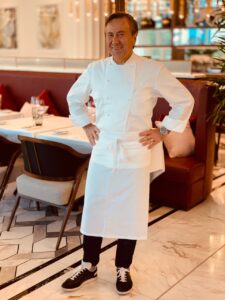
I first interviewed chef and restaurateur Daniel Boulud in the Cayman Islands for Ritz-Carlton’s annual Cayman Cookout beach bash in 2014. Digging out my interviews for FooDiva and, separately, for The National, I wrote back then:
“Out of the ten world-class chefs I meet at Cayman Cookout, Daniel Boulud ranks top, leading the talented pack. Interviewing him in the hotel bar, he’s a listener. Funny. Highly interesting and interested. Curious. And that French accent is a charm.”
Fast forward over six years, he was in Dubai last week to open Brasserie Boulud at the new Las Vegas-esque Sofitel Dubai The Obelisk in the Wafi complex. A 90-minute interview later, and those statements still ring true. To top it all off, at 65 now, he’s not aged one bit, despite having to navigate a global crisis threatening to ruin his three-decade-old empire spanning 17 restaurants in North America and Singapore, as well as catering and private dining ventures. Owning the building that houses his flagship two-Michelin star Daniel restaurant has helped manage the rent obligations across his other establishments.
So voilà, here’s a rather long, yet insightful read into this Lyon-born monsieur, including what he makes of Dubai’s maturing homegrown restaurant scene.
When I interviewed you in the Cayman Islands back in 2014, you mentioned potentially bringing your Mediterranean-North African concept Boulud Sud to Dubai. Why did you change your mind and settle for your now-closed Las Vegas brand – Brasserie Boulud? First, because the Group Accor and Sofitel approached us and said, “You know we have a brasserie project here in Dubai, and we would like Daniel to come and take this.” So they already had in mind to create a brasserie, and we came about a year ago. The structure and the framing was already in place, and we tweaked a few things, but we didn’t want to just reinvent things. We felt that it had a very good direction and a good setting. I already had Brasserie Boulud for five years at the Wynn in Las Vegas which was amazingly successful over the five year contract. So I haven’t done Brasserie Boulud for a while.
Is it similar to the Las Vegas concept? It has similarities and yet it’s a different time. There is some DNA and strong influence from Boulud Sud, but also from Cafe Boulud which is now 23 years old – where we always had four menus. And I think, coming here with Brasserie Boulud, it will give me a chance to pull from Boulud Sud, Café Boulud, DB Bistro and still stay in the DNA of Daniel Boulud – but some dishes will vary with flavours that are a little more Asian, sometimes Middle Eastern, or Mediterranean, or sometimes very French.
Why this hotel? I know Sofitel from the founder of Sofitel and Accor Group, the family, and the CEO also. And being associated with a French company here, we are very happy with that.
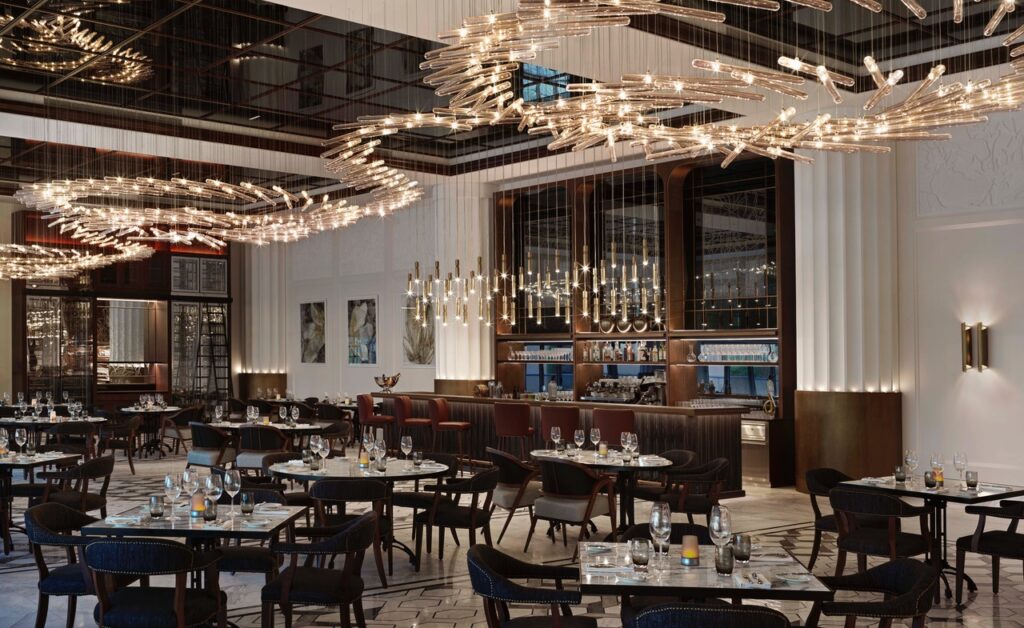
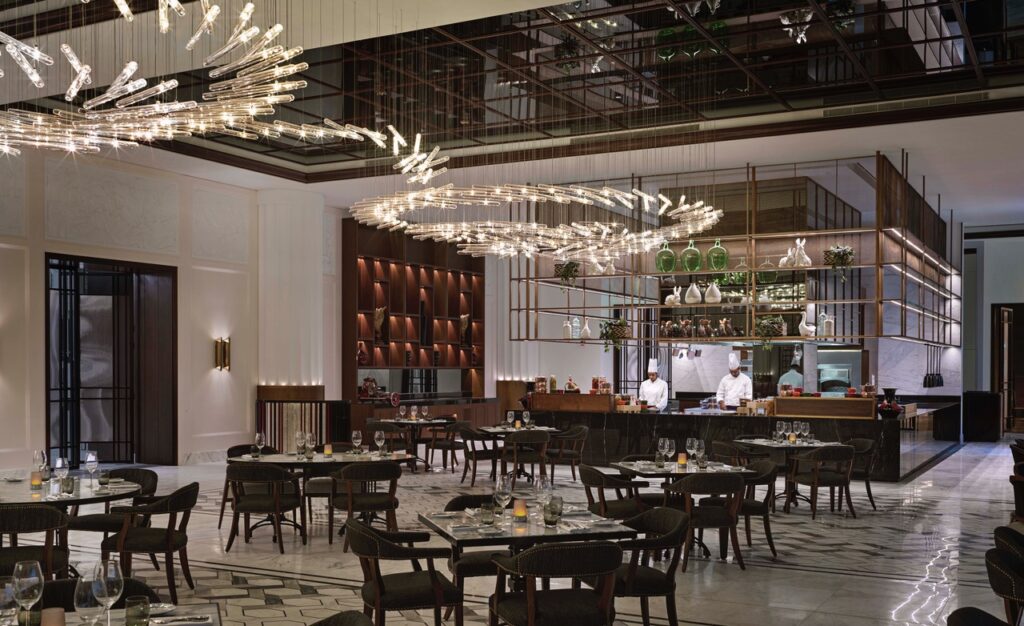
How many times are you set to visit Dubai in your contract? I cannot sign a contract imposing me how many times, how many days – but we are committed as a group, either myself, or my corporate chef, or the director operations, or the CEO to visit. Also we maintain a close relationship; we have weekly meetings; we are in constant communication with the chef, with the managers, with the performance. But like all my other restaurants, I regularly visit, and with Singapore, it’s a perfect hub to be able to bounce here and there at the same time.
What are the biggest challenges you are facing in a Covid world? The biggest challenge is to not have been able to reopen all our businesses yet. In Washington DC, we have not reopened. In New York, I’ve only opened half of my business. The catering company is still closed. Half of my retail store, Épicerie Boulud, is open. DB Bistro is closed. Cafe Boulud is closed. But I moved Cafe Boulud to Blantyre, a beautiful Relais & Châteaux property three hours north of New York. We did a pop-up there for the summer because they didn’t have the music festival. It was really well received, so much so, we are staying there for longer.
I wanted to save my talent, and bring them back. They were unemployed making a quarter of their salary. We also had the help of the government, but that came very early and it didn’t give us the chance to open the business until very late. They gave us 24 weeks to use this support, but we could barely use half, because we didn’t have enough operational time. So it was good, but not perfect. Now we have about 60 per cent of our staff which is not much, but the ratio of staff to revenue is very different now. We’re trying to figure out a balance. I feel safe going through winter if we don’t have a shutdown.
You re-opened your flagship two-star Daniel though? Yes, but I didn’t re-open Daniel as Daniel. We re-opened first with a sidewalk café and take-out. Every weekend we sent trucks with boxes to the Hamptons full for the whole weekend. You could feed eight people for three days with boxes, different menus and just a little bit of finishing. Then when they gave the authorisation to open inside, we raised some money with sponsors and with help from designer friends and Hermès, we created a stage inside Daniel to transform the restaurant into Boulud Sur Mer. We brought the South of France to New York, with all the flavours of Provence and the Mediterranean – and the feel of this garden room inside Daniel was quite transforming. We’re still at 25 per cent capacity, so we’re going to continue with it. Now that it’s getting colder in New York, we have built bungalows outside which was a real structure because we have insulation, flooring, fabrics, heaters. A crazy production! But we tried to stay positive and creative, and are still financially stable. We try not to blow away money for nothing.
How else have you had to adapt? Any silver linings? Five days before New York imposed a shutdown, we made a decision to shut the business because we had a Covid case who came to the restaurant and hit the headlines. I felt so scared for our staff and for everyone. I talked to Eric [Ripert of Le Bernardin] that day and he said, “I think I’m going to close too”. Then we decided both to shut our business. It was a little scary, crazy, and from there, within two weeks, we created a foundation for our staff. ‘Hand in Hand’ by Daniel Boulud – and we managed to raise more than half a million dollars to give back to the staff. And we’re still paying back the insurance and if anyone needs support, we still have money to give them.
I also have a new partner for a business next year called Le Pavillon, and that’s at One Vanderbilt – a new tower in the heart of Manhattan – opening in March next year. This new partner has a big real estate company in New York and he felt that many of his food tenants were not able to reopen their restaurants. Usually it’s the other way around, you beg the real estate to either help you with your lease – yet here he said he’s going to pay them to reopen their business. So we created a foundation called Food First Foundation and he seeded that with one million dollars. We started to have restaurants making meals. That was about three to four weeks after the pandemic started and since then I have been making meals. We have given about half a million meals to New Yorkers to date, and I think I’ve done myself about a quarter of that to CityMeals-On-Wheels [Daniel’s longterm community initiative] mostly and to Jose Andres’ World Central Kitchen.
And to come here and open. Of course, everybody is like “Wow. You’re in Dubai? You’re opening a new restaurant!” I’m like, yeah well some parts of the world are hopeful. And I think the silver lining is to have been able to bring and save quite a lot of talent.
We have also joined Goldbelly – a national distribution of foods – so you can order a bouillabaisse or braised short ribs ready cooked to eat right away or freeze. You can live in the middle of Texas or Minnesota and have Daniel Boulud on your table. I never had so much cardboard in my restaurants. There’s enough business to keep people occupied and I think that’s the goal. Will it grow to become a profitable business one day? Maybe. But we did it out of necessity, and we might eventually do it as a business.
What’s the future of fine dining and Michelin/ World’s 50 Best restaurants? Does it have a future? People don’t feel they can engage in a 12-course meal yet, because I think fine dining has been disrupted. So everyone needs to find his groove, but one thing you can’t take away is the talent, the creativity, the ambition, the energy, the will to do better, to keep being relevant. Fine dining is the greatest school in our industry. And I think that has to continue. The customer with the privilege to indulge once in a while, will come back. In New York, a couple of friends have re-opened their fine dining, even Eric re-opened at Le Bernardin without changing the concept much – and people are very happy to come back.
You’ve clearly adapted very well with Daniel. Do you think you’re going to incorporate some of these changes when you re-launch your tasting menus? When might that be? Of course. I think next year. I want to do a refresh with the restaurant. The restaurant is 23 years old – and we went through two different designs. This new life will define the direction I want to take, but it will still be fine dining for sure. Fine dining will never die. There are so many young people who appreciate so much the sense of accessible luxury. Because I think unless you are outrageously expensive, fine dining can be as affordable as going to a Cipriani or a Zuma. The stigma of fine dining being expensive or passé or out of place is totally wrong. I think people need to nurture themselves with excellence and creativity and the energy pulled out of fine dining restaurants. Maybe the menu and team might be a little smaller, the performance might be a little less than it used to be in terms of volume or revenue, but the commitment will remain the same. And everyone has to find this new balance with the economics. We have to guess for the future and try to move on as we go. That’s the biggest challenge.
How did you feel losing your third star in 2015? Were you expecting it? Was it fair? And what did you do about it? No, I was not expecting it. Restaurant Daniel has been a restaurant that has always strived in excellence. New York has the big five – Per Se, Eleven Madison Park, Le Bernardin, Jean-Georges, Daniel. Jean-Georges and I are maybe the biggest and most entrepreneurial, compared to the others. Maybe some of the decisions that we made for our business were not compatible with Michelin. We cook for New Yorkers, not just tourists. And I feel that maybe that was a bigger challenge, because I needed to prove my excellence and my consistency and my commitment to my customers, rather than to Michelin. It has served my business safely well; it has served my customer well; it has served my staff well; it has served me well; and maybe it didn’t serve Michelin perfectly. But that’s okay. And when I lost the star it didn’t matter to any for the business. It hurt me and my staff more, but at the same time I told my staff, I said, “Listen it’s not the end of the world. And we’re going to be the best two star New York has seen, and we will always push the three on their hedge.” And I think we have always done that. The same customer will come to New York for a few days and they’re going to go to Le Bernardin, they’re going to go to Daniel, they’re going to go to Jean-Georges, they’re going to go to EMP, and they can compare. I leave it to them.
So it’s better to be a good two star, than a bad three star? Yeah, exactly. Not ‘bad’, but…[he smiles].
What do you think of Dubai’s restaurant scene? Of course there are a lot of franchises. There are also some good local chefs. I think there’s room for evolving talent for independents, and that will continue. I think it’s important to know how to adapt. I think in Dubai they want to feel like life is a party and let’s go and have fun. I think that’s good, and I believe in that. But I think fine dining has always played a role here and will continue. I think it might not be the majority of what the city wants to be, neither what the city needs, but I see the lineup of talent coming next year from independent to big restaurant groups. It’s good to be a part of this. I compare Dubai with Singapore in a way – very cosmopolitan, a lot of expats, but a lot of locals, and different types of locals, so here of course I have to adapt the cuisine to not use any wine in the cooking.
Are you looking to expand elsewhere in the region, Saudi Arabia perhaps? Yes, absolutely. I have some friends there that are doing some projects and I would like to have a little bit more opportunity, but first we will start with this one and not spread ourselves too fast, too thin. And certainly Asia as well. Singapore has been quite amazing [for us].
You’re an investor in Spyce, a robotic restaurant in Boston. Do you think, given the increased Covid health and safety protocols, robotics are the next step for fast-casual restaurants? I have been with those kids for five years, as an investor and as a partner in the business. They are opening a new location at Harvard Square with version two of the robot which is really incredible. If the first robot was doing let’s say 25 steps in the making of your meal, this new robotic kitchen does about 75 steps. It has the potential to serve 600 meals an hour. And, surprisingly, tastes good. It does everything, including seared meats. It’s extremely complex, but extremely efficient. And in this world of Covid, in this world of safety, it is fabulous.
You’re both a chef and a restaurateur. Do you think the tradition of a maître d’ is dying? How does it sit in terms of importance with the chef? I don’t think a maître d’ will ever die, despite technology and online bookings. They have such an important role in making sure that every customer has a customised experience; to maintain the high quality of service. It’s important for a customer to know they will be taken care of properly and personally. Yes the chef is the marketing guru behind his restaurant, but in the old days the maître d’ [with his little black book] was the marketing guru, and I think there’s still a big role to play with that. I talk to my maître d’ every day in New York and ask him what’s happening, where are you seating these guests, what are you doing for these other guests. So don’t worry – fine dining, maître d’s, sommeliers – it’s all going to stay.
Some fun questions to end. How would you like to be remembered? I haven’t built a legacy yet.
Surely you have? Okay. Perhaps over these forty years in America with the thousands of young chefs and young professionals. I certainly gave them an opportunity to become who they are. As an example, yesterday I was at Burj Al Arab and I went to the new restaurant Sal with Jumeirah’s vice president of food & beverage, Dominique Romeo, who used to work for me 20 years ago. He met his wife working with me, and yesterday I met his two daughters; they’re 14 and 12. I have so many children who came out of relationships between people working together in the restaurant. Coming from different parts of the world and meeting at the restaurant and becoming couples and having children and families.
The school of Daniel? Yes. I want to be remembered as the school of Daniel. Because there will be many people to testify about the education and the impact we have. I want to continue to help young people in this business. Being an inspiration is very important.
What’s your favourite restaurant in the world? Apart from yours of course. It’s in France – Troisgros. Michel, César and Léo Troisgros. I know the house for almost 50 years and what has always fascinated me is this amazing renewal of their tradition and yet constant innovation. There’s a sense of family unity and creativity and honesty that fascinates me. They’re good friends but they are also great inspiration. They never change and it doesn’t matter when I go there, whether it’s 30 or 20 years ago or today, I still feel that it’s a renewed experience by being so different and yet so much.
Have they had to adapt with Covid? They moved their restaurant from the city to the countryside into an estate and it has really changed the mood of the experience. They’re always witty and they really have mastered the art of doing so much with so little. Sometimes they will do a dish like saumon à l’oseille which was created in the late 60s/ early 70s. The dish was composed of three things – salmon, sorrel and cream sauce. One of the world’s most legendary dishes. Often they will make a dish out of two things and make it in a composition that is unforgettable. Troisgros has always amazed me and will keep amazing me.
A bientôt.
FooDiva. x
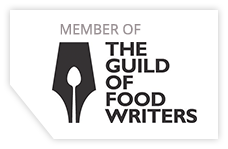














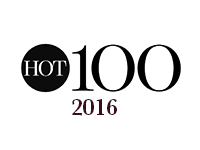
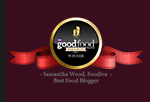
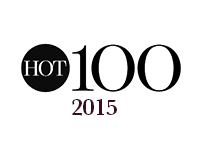









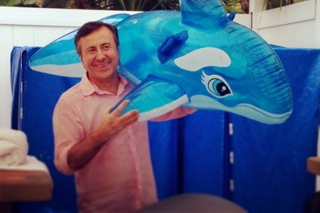
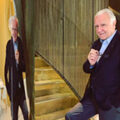

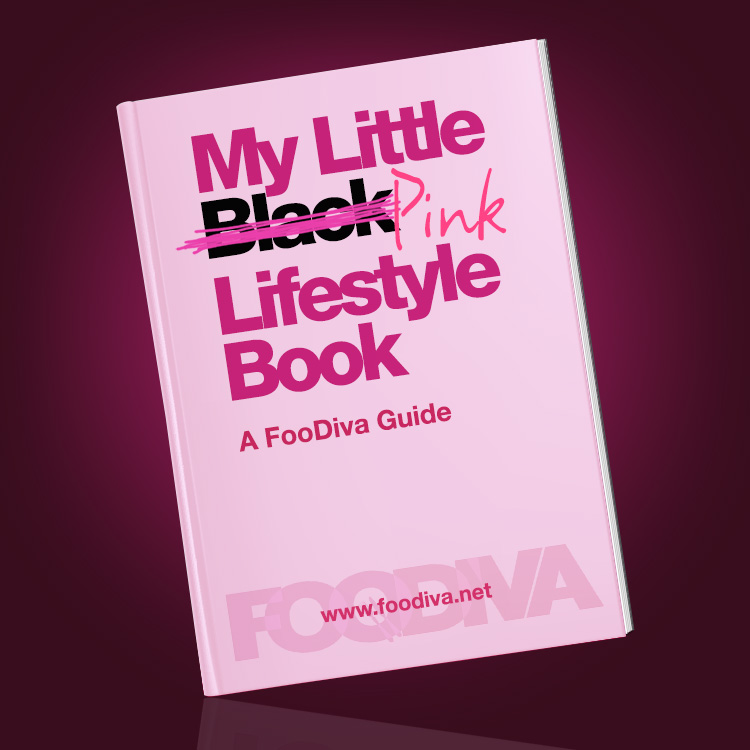
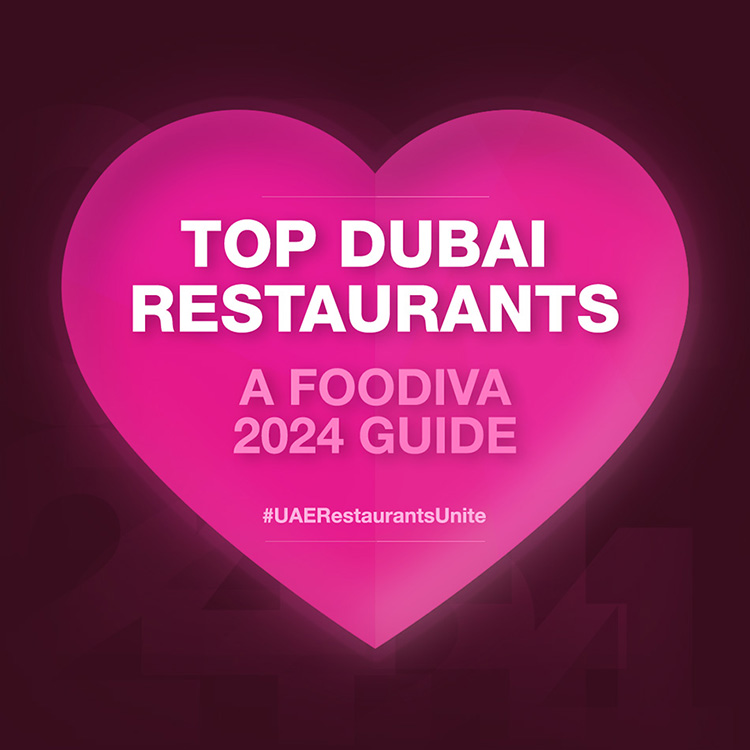
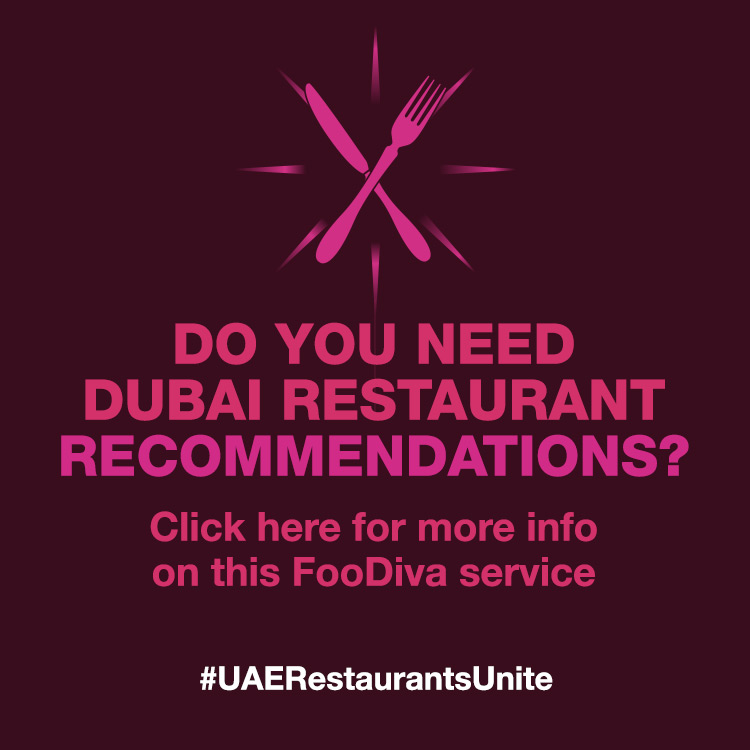





No comments yet